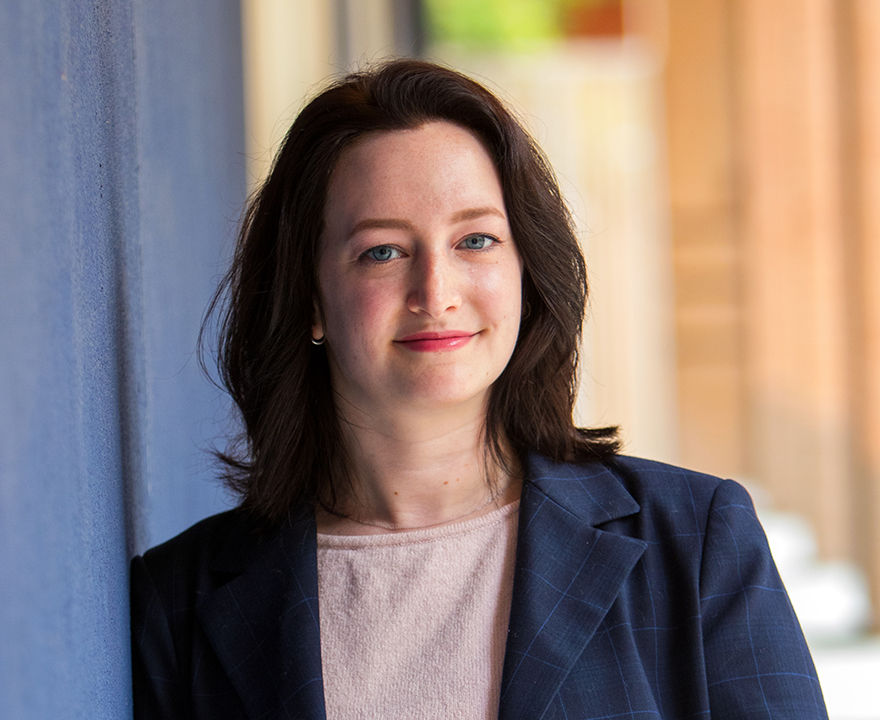Gordon receives NBER fellowship

Gordon receives NBER fellowship
- July 3, 2024
- Award supports her research on retirement and disability policies and their far reaching impact
Sydney Gordon, third-year economics graduate student, has been awarded a Pre-Doctoral Fellowship in Retirement and Disability Policy Research from the National Bureau of Economic Research. The award will support her research on how administrative changes in Social Security Administration can have far reaching – and widely varying impact – on different populations. Below, the Bedford, New York native shares more about her research, Anteater experience, and plans post-Ph.D.
What made you decide to pursue your current field of study, and specifically at UCI? What interests you most about your work?
I loved my Clemson University undergraduate courses in economics; it felt like solving a puzzle to understand the world around me. After graduating I worked in the private sector for four years but always had the feeling that I wasn’t “done” with economics, and I wanted to challenge myself to see how far I could go. This led me to pursue research, which allows me to explore unanswered questions about the world.
I chose UCI because the faculty were supportive of research that bridges different fields. It was important to me to have the freedom to explore whatever I found interesting; I didn’t want to attend somewhere where I would be pressured to fit my research into a traditional box.
Tell us about your research. What problem will your findings help solve?
This project is about a period in the 1980’s when the Reagan Administration imposed a five-year hiring freeze on the Social Security Administration. I find that counties which lost more staff over that period saw larger decreases in citizens enrolling in benefits, but what is most interesting is that different programs (for example, retirement benefits versus disability benefits) saw different impacts even in the same county. This highlights that the same administrative change can impact people in very different ways. Understanding how big of an impact these kinds of administrative changes have, and for whom, is an important step in deciding how the agency should navigate its future. Nearly every person in the U.S. will interact with the Social Security Administration at some point in their life, so the stakes are high!
What organizations, foundations, etc. have funded your research while you’ve been at UCI? In addition to academic, what other activities have you been involved with?
This fellowship, the NBER Pre-Doctoral Fellowship in Retirement and Disability Policy Research, is provided by the National Bureau of Economic Research with funding from the Social Security Administration. I have also received funding for other work from the Center for Global Peace and Conflict Studies (CGPACS) at UCI. I’ve served as co-lead for Women in Economics and as the economics department representative for DECADE.
Who have been your faculty mentors while here, and what impact have they had on your graduate career?
I am fortunate for the support of many faculty members in the economics department, but I am particularly grateful for the mentorship of my advisors, Matt Freedman and Stergios Skaperdas. The PhD process can be filled with ups and downs, which makes their unwavering positivity and encouragement invaluable. Since they work in different specialties, Matt in public economics and Stergios in political economy, they each bring unique and interesting perspectives to our research conversations and challenge me to consider the same idea from different angles. They are eager for me to explore any ideas I find interesting, while also providing essential guidance in both the research process and in navigating academia.
When do you plan to complete your Ph.D.? What are your plans thereafter? How has UCI prepared you well for this role?
I plan to finish my Ph.D. in 2026 and hope to find a position in academia or at a research organization.
Any unique life experiences that have guided your educational journey? Give us some background.
In the private sector I worked for a major bank in their anti-money laundering department. While I may or may not pursue research in this area in the future, it made me appreciate the difficulty of designing policies that achieve their objectives. It would be difficult even in a perfect world, with perfect information and data, but for most questions we want to answer we don’t have anything close to that which makes it even more challenging. I believe that there is real power in doing careful, thorough research so policymakers can make better-informed decisions.
Any other tidbits you’d like to share?
When I first started this project I was trying to locate primary documents in Langson Library and it was my first time ever using microfiche! I felt like a detective in a movie.
-----
Would you like to get more involved with the social sciences? Email us at communications@socsci.uci.edu to connect.
Share on:
Related News Items
- Social Security has protected Americans for 85 years. Now Americans must protect Social Security.
- How Social Security Administration cuts affect you
- Economics of Anteater life
- A cash-for-clunkers program could reduce aviation emissions
- Attending the National Conference for Black Political Scientists


connect with us: